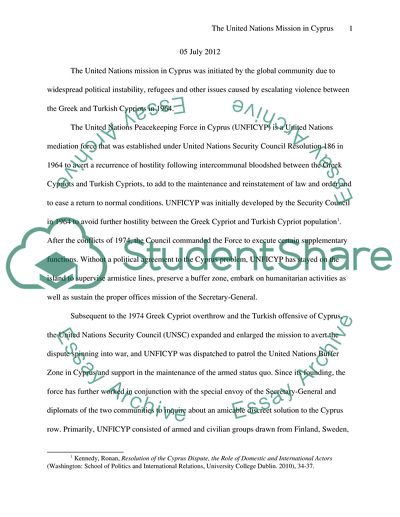Cite this document
(“The United Nations mission in Cyprus was initiated by the global Essay”, n.d.)
The United Nations mission in Cyprus was initiated by the global Essay. Retrieved from https://studentshare.org/history/1599365-the-united-nations-mission-in-cyprus-was-initiated-by-the-global-community
The United Nations mission in Cyprus was initiated by the global Essay. Retrieved from https://studentshare.org/history/1599365-the-united-nations-mission-in-cyprus-was-initiated-by-the-global-community
(The United Nations Mission in Cyprus Was Initiated by the Global Essay)
The United Nations Mission in Cyprus Was Initiated by the Global Essay. https://studentshare.org/history/1599365-the-united-nations-mission-in-cyprus-was-initiated-by-the-global-community.
The United Nations Mission in Cyprus Was Initiated by the Global Essay. https://studentshare.org/history/1599365-the-united-nations-mission-in-cyprus-was-initiated-by-the-global-community.
“The United Nations Mission in Cyprus Was Initiated by the Global Essay”, n.d. https://studentshare.org/history/1599365-the-united-nations-mission-in-cyprus-was-initiated-by-the-global-community.


